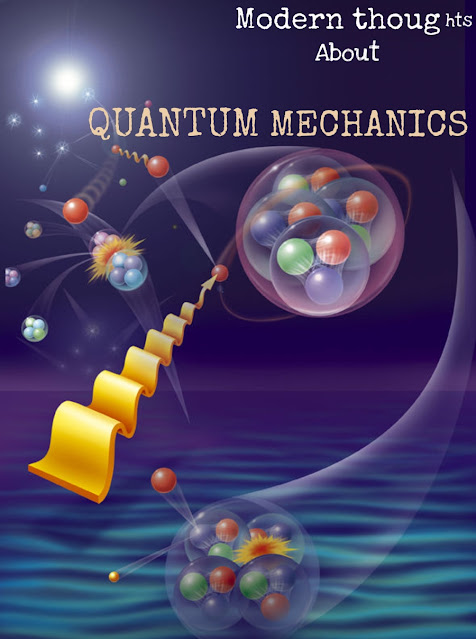Modern Thoughts About Quantum Mechanics
The discovery of the laws of quantum mechanics has severely affected the way in-vestigators now think about ‘reality’. Even authorities such as Richard Feynman were baffled: “I think I can safely say that nobody today understands quantum mechanics”. One fact was established with very little doubt: the theory is completely coherent and it agrees amazingly well with experiment.
It would be nice if an evolution law for a cellular automaton could be found that generates the particles of the Standard Model and the characteristics of their interactions, but most investigators today find it quite unlikely that we will soon be able to identify such a system starting with what we know. What we do have, could be formulated as a dictionary of information: our particles represent information, which is passed on and is being processed. Today, we experience these processes as if it is quantum mechanical information: superpositions of eigen states of operators called observables. If one system of information carriers could be exactly transformed into another system of information carriers, with other rules of processing this information, then we would never be able to decide which of these systems is more ‘fundamental’. Consequently, we might end up with classes of cellular automaton systems, such that we cannot decide which element in one particular class represents our world. David Deutsch formulates this situation in his constructor theory. The key point is distinguishability of different physical systems.
The proposal presented in this book is that at least one element in such classes should turn out to be a classical automaton, but this step is usually not made. More frequently, it is found that a ‘many world’ interpretation seems to be inevitable.
Also, the idea that non-linear modifications of the Schrödinger equation, no matter how small, would be needed to explain the collapse of the wave function, still seems to persist. The density matrix calculated from the Schrödinger equation contains off-diagonal terms, and no matter how fast these might oscillate, or how unstable the phases of these terms are, something seems to be needed to erase themal together. We will show that this is not the case in our theory.
A poll held by A. Zeilinger et al.concerning positions taken by participants of a conference on the foundations of quantum mechanics, was quite revealing. Although perhaps the questions themselves were somewhat biased, it appeared that a majority is divided over the exact wording to be chosen, but agrees that quantum information is fundamentally different from classical information. None of the participants believed in an underlying deterministic theory. Most of them thought that Einstein, in his criticism of Bohr’s formulation of quantum mechanics, was simply mistaken. In this book we hope to convince the reader that a deterministic underpinning theory may not be impossible at all, and, although Niels Bohr was right in a pragmatic sense, there are amendments to be made to the Copenhagen doctrine. A bird’s eye version of the views elaborated in this book, was presented in Ref. Other, preliminary excursions by the present author are described in and
Practically all investigators adhere to the concept called freedom of choice, which means that an observer, at any time, must enjoy the freedom to choose which observable property of a system is to be measured. Zeilinger claims that this freedom can be guaranteed in experiments. In our book however, we observe that there may be a severe restriction to this freedom of choice, due to very strong spacelike correlations. By carefully defining exactly what freedom of choice means, we shall replace ‘free will’ by something mathematically more precise. We then ob-serve that although all observers at a given time indeed have the freedom to choose their settings, correlation functions then dictate, non-locally, what the ontological states of the observed objects such as elementary photons may be. In short, the choices made by an observer will have to comply with the correlation functions im-posed by physical laws. The laws are local, but the correlation functions are not. Wes hall see how these correlation functions may affect our conclusions concerning the mysteries of quantum mechanics.
...........fiza engineer...........
...........Sk Najmul...............
x



0 comments:
Post a Comment
Please do not enter any spam link in the comment box.